Photo Credit: Shutterstock
The 4 Most Important Reasons You Need to Become a Mentor
“This article was originally published on Inc.com”
Fifty years ago, a fourth-grade teacher in rural Mississippi noticed something special in a little girl in her class. The teacher knew the little girl could achieve great things, but something was holding her back.
 So the teacher asked her to read aloud in class to help her overcome her nerves. She spent time with the little girl after school and allowed her to choose books and help grade papers. Her influence helped the little girl see past poverty. Today, that girl has become one of the most influential women in the world: Oprah Winfrey.
So the teacher asked her to read aloud in class to help her overcome her nerves. She spent time with the little girl after school and allowed her to choose books and help grade papers. Her influence helped the little girl see past poverty. Today, that girl has become one of the most influential women in the world: Oprah Winfrey.
Mentorship has obvious benefits for both the mentee and the mentor. You’ve probably read articles that talk about the knowledge, connections, and personal growth that mentorship can provide.
But one day, someone might reach out and ask to be mentored. Or, like Mary Duncan, you will come across someone who has potential she hasn’t yet reached.
What will you do in this situation? If you’re struggling to see the value in becoming a mentor, consider these additional advantages that mentorship can help you realize.
1. Achieve personal career gains. Mentors are people who will go the extra mile to help others and exert a positive influence on their lives. And that can lead to huge career opportunities.
Don’t believe me? Sun Microsystems did a study on the career progress of more than 1,000 employees over a five-year period. It discovered that both mentors and mentees were 20 percent more likely to get a raise than people who did not participate in mentoring. Mentors were also six times more likely to be promoted than employees who didn’t mentor. To that end, you can ask your mentees for testimonials–videotaped or written–to validate your experience when applying for positions in the future.
2. Enhance your leadership skills. When you teach someone, you truly become a master on that subject. You not only reinforce valuable leadership lessons, but you also question and refine your own thinking and approaches.
You’ll find yourself working harder to live up to the expectations of your mentee. After all, you can’t advise her to work hard and do things you aren’t willing to do yourself. With the mentee’s spotlight on you, you’ll push yourself to grow.
3. Help shape the leaders of tomorrow. Mentees will often (but not always) be younger than you. It’s easy to think the next generation needs more education while you have it all figured out.
But the truth is that Millennials are the ones creating the workplace of tomorrow. They understand trends and technology that may escape you. If you watch your mentee closely, you’ll almost certainly pick up some information or habits that are new and beneficial to you.
4. Gain the intrinsic rewards of helping others. This is the reason you hear most often, but it’s a powerful one.
I was recently working with a client who was struggling with her self-perception. Her negative thoughts were holding her back in many areas. When we peeled back the layers together, we found the root of the problem, which helped her begin to heal. That aha moment completely changed her trajectory, and she’s now taken her business to new heights.
She might not be the next Oprah Winfrey, but just knowing I had an impact on her life is a great feeling that makes the time and effort completely worth it.
Mary Duncan didn’t know the little girl in her fourth-grade class would go on to become one of the most famous and successful women in history. But Oprah credits much of her success to those afternoons with her teacher.
When you decide to mentor someone, you really have no way of knowing how far she’ll go. Whether you shape the next great entrepreneur of our time or help someone achieve her dreams, you’ll make a difference–and that’s all that matters.
Until next time,
Kelli Richards
CEO of The All Access Group, LLC
PS: The right mentor should also have the right CONNECTIONS to move you forward. Be sure to ask who they think they can bring to the table around advisorship, possible collaboration and even funding. Visit: https://allaccessgroup.com








 Can ‘Silicon Valley’ Avoid Hollywood Startup Myths?
Can ‘Silicon Valley’ Avoid Hollywood Startup Myths?


